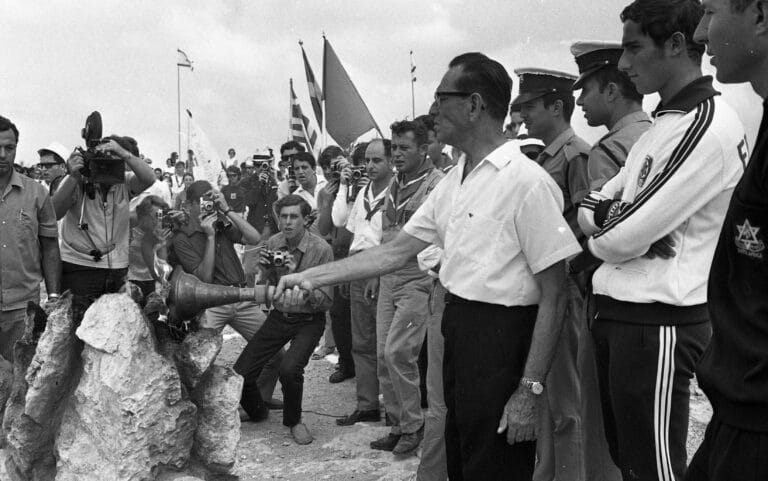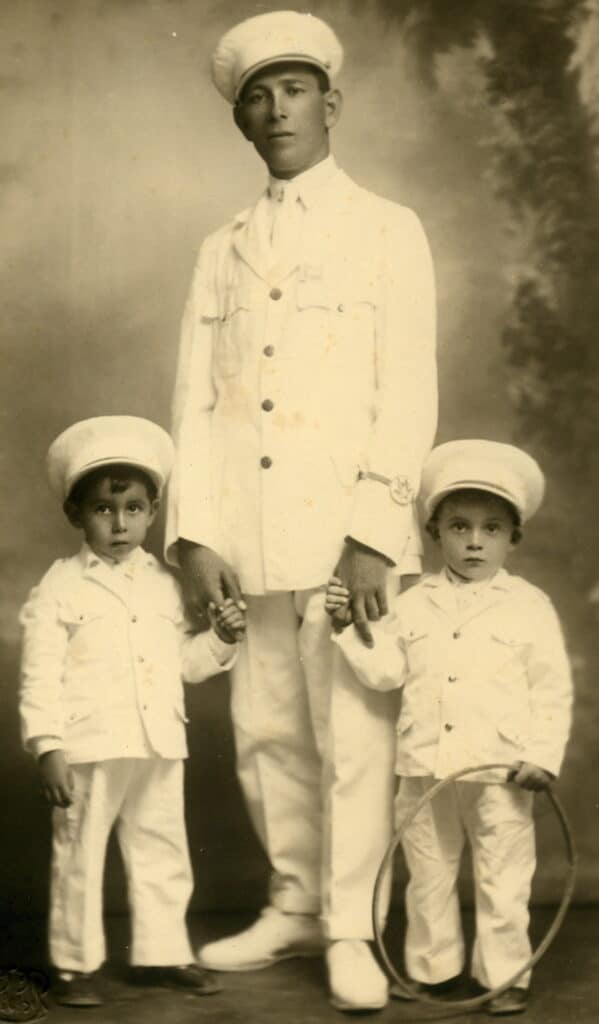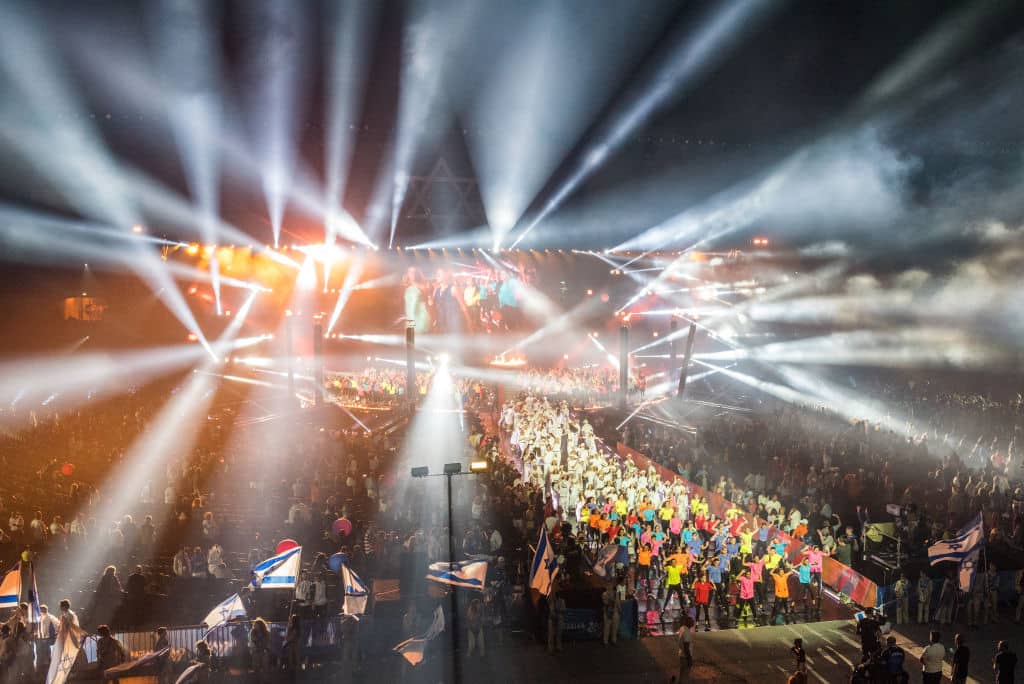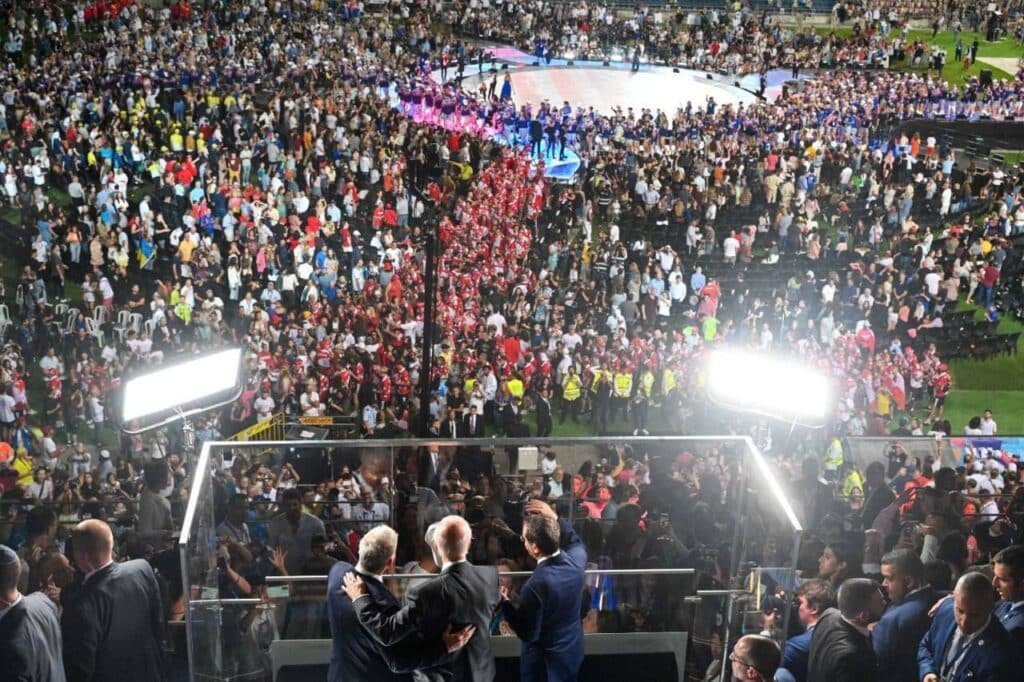
Thanks to a Russian-born Turkish World War I veteran, there is a Jewish Olympics.
The Maccabiah Games are a coming-together of the Jewish diaspora to compete athletically on a global stage and celebrate our people. There have been 21 Maccabiah Games dating back to the first in 1932, with more than 75,000 Jews participating across 90 years.
What began as a 15-year-old’s far-fetched dream became a staple of the international Jewish community. This is the story of Yosef Yekutieli (also known as Joseph Yekutieli)
An Ottoman immigrant
Yekutieli was born in 1897 in Beresa, Russia, now Belarus. Twelve years later, his family immigrated to Ottoman-ruled Palestine. He studied at the Jerusalem Teachers Seminary and played soccer for Maccabi Tel Aviv. Then, war broke out.
Archduke Franz Ferdinand was assassinated, and soon after in 1914, he was drafted by the Turkish Army. Yekutieli spent the next several years as a physical education teacher and translator for the army. His service culminated with an Ottoman Iron Ribbon.

The war had put a pause on Yekutieli’s dream – the life purpose he imagined at age 15. The 1912 Olympic Games in Stockholm lit a fire inside the young athlete. He wanted to see a Jewish team arrive as a unit at the Olympics. It became his mission to make it a reality.
His first try came in 1922. He suggested to the International Olympic Committee that it allow the Jews of Eretz Yisrael into its ranks. The body refused, stating that it would only accept the entity as recognized by the League of Nations: British Mandate Palestine. This would mean that any person living in the area could represent the land. It was a setback to Yekutieli’s aims.
“There seems to be no hope for the Jews to appear at the Olympic Games as Jews,” Yekutieli wrote to a colleague.
Yekutieli kept taking strides at making his dreams come true. In 1928, he launched what later became the Israel Football Association. In 1931 came what is now the Israeli Athletic Association. In 1933, he finalized the Olympic Committee of Eretz Yisrael, since updated to the Olympic Committee of Israel.
Read more: The untold story of Jews and soccer
Each of the institutions that Yekutieli masterminded remain critical to the development of athletics within Israel today. But the Maccabiah Games have cast the wider net.
How Yosef Yekutieli made the Maccabiah Games
As Yekutieli accepted that sending a Jewish team to the Olympics was not in the cards he formalized something different that accomplished the goal.
The World Congress of Maccabi, an international governing body for Jewish sports now known as Maccabi World Union, met in Czechoslovakia in 1929. Now an adult and well-known in the Jewish sports world, Yekutieli was ready to pitch the idea he’d had been planning for 20 years. He introduced his plan for an international Jewish sporting competition to the organization, and the race to make it a reality was on.

It may have seemed crazy in 1912, but the Maccabiah Games was rubber stamped in 1929. The inaugural contest was to take place three years in the future in Mandate Palestine. All Yekutieli had to do now was pull it off.
The Games needed a home. With no suitable venue existing, one had to be built. Yekutieli raised the $15,000 ($500,000 USD in 2024) necessary to complete the construction of Maccabiah Stadium in Ramat Gan. The project finished just in time – the last nail was struck on March 28, 1932, the day of the opening ceremonies.
It was quite the scene. Tel Aviv Mayor Meir Dizengoff led a parade of 390 Jewish athletes from 18 different countries on a white horse. The newly-built stadium hit its maximum capacity of 20,000. The day set the tone for a successful week that saw Poland, Austria, and the United States take the top three positions on the medal chart, respectively.
Locals pitched in to make it all work. To cover the shortage of hotel rooms, Tel Aviv residents housed and fed traveling athletes with nowhere else to go. The Maccabiah Stadium hosted most of the first Games’ events, but it couldn’t support them all. Some competitions happened in the streets, and water sports entertained spectators at nearby beaches. It was an all-out community affair.
That energy rolled into Maccabiah II in 1935. This time, 1,350 Jewish athletes from 28 countries appeared in Tel Aviv to test themselves against the rest of the diaspora. Maccabiah’s momentum was artificially stifled before the start of the 1938 Games. World War II and local violence between Jews and Arabs made another Maccabiah Games impossible, and it took 15 years for the follow-up to the sequel.
A deep dedication
Since 1950, a Maccabiah Games has been held in Israel at least every four years, excluding the additional year the pandemic induced between Maccabiah XX and XXI. Winter Maccabiah was attempted in the 1930s in Europe, but none have occurred on a worldwide scale since. Regional Maccabiah Games have sprouted up around the globe, most notably in Europe and a joint event between North, South, and Central America.
Yekutieli never strayed from his goal of providing Jews with the greatest platform possible to showcase their physical abilities. At one point, that included asking Nazi Germany for some tips.

Yekutieli was no friend to the Nazi regime. He wrote statements condemning the decision to host the 1936 Summer Olympics in Berlin, declaring “all sports for all peoples!” But in 1937, when Yekutieli still thought the 1938 Maccabiah Games were on the horizon, he wanted the perspective of the people who had just hosted the most recent Olympic Games. Yekutieli wrote to a German connection in search of some information.
“If it will cause you no difficulty and you can obtain at small cost sundry literature about the Olympic Games in Berlin, particularly the propaganda booklet, I would be most grateful to you,” Yekutieli wrote, “because we are about to hold a large international sports event here and we are eager to have appropriate material in our possession.”
This is the seriousness with which Yekutieli took the Olympics and what mimicking its systems could do for the promotion of sports among the Jewish people.
Yosef Yekutieli’s legacy
Yekutieli furthered his involvement in Jewish sports following the creation of the State of Israel in 1948. The country made its Olympic debut at the 1952 Summer Games in Helsinki, realizing a vision Yekutieli had 40 years earlier.

That didn’t stop the Maccabiah Games, though, which Yekutieli stayed hands-on with until his death in 1982. He assumed the role of Israel’s representative to the Asian Sports Federation Games, and kept giving time and expertise to the Israeli sports federations he founded. By the time Israel honored Yekutieli with the nation’s Prize for Lifetime Achievements acknowledgement in 1979, it was richly deserved.
Indirectly, Israel also has Yekutieli to thank for a piece of its defensive capabilities. Gideon Yekutieli, one of six children Yosef had with his wife, Yehudit, helped establish the first particle physics laboratory in Israel. He became one of the nation’s first nuclear physicists, served as a professor of physics at the Weizmann Institute of Science, and co-created a device that could convert sun rays into energy. He died in 1999.
Yosef Yekutieli’s impact on Israel can be felt in so many corners. There is little in Israeli sports that flourished without his influence.. More than 40 years after his death, The Maccabiah Games show no sign of losing steam. Some of the greatest Jewish athletes of all time, from decorated swimmer Mark Spitz to chess champion Judith Polgar, have graced the Games. Massive world figures, like U.S. presidents and British prime ministers, have made appearances.
Yosef Yekutieli’s dream empowered tens of thousands of Jewish athletes of many ages and skill sets to put on their country’s colors and partake in something bigger than themselves – he will always be the father of Jewish athletics.
